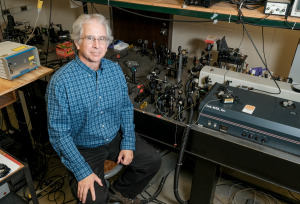Butler to freeze tuition for first time in decades
The Indianapolis university said this will be the first time it has not raised tuition rates since 1983.
The Indianapolis university said this will be the first time it has not raised tuition rates since 1983.
Purdue University is partnering with numerous industry and government partners to develop what the university says will be the first-of-its-kind “smart manufacturing” undergraduate degree program.

The predominantly Black college—under the leadership of a president hired less than two years ago—is making moves to expand its enrollment, its reach among Black adults and its presence in the community.
The 2020 Certificates report shows that Indiana has gained 15 percentage points toward education attainment since 2008.
Siblings who contacted Purdue University about helping to lower the alpaca mortality rate in their native Peru are now suing, claiming the West Lafayette school has garnered millions of dollars from additional projects they helped establish but is refusing to pay them for their work.
Offutt Air Force Base in Nebraska is one of six finalists to become the headquarters of the new Space Command, which would offer the alliance new opportunities for academic and research programs.
The program at seven private schools will take advantage of a longer winter break to provide intensive instruction and is aimed at non-computer science students.

More and more of the work done by university researchers is being spun off into companies and commercial applications that they or the universities own or are a part of.

Once the tunnel is installed, Purdue will be only the second U.S. university to offer such hypersonics test capability.
The grant will support NASA student internships and fellowships, student STEM experiences, faculty STEM projects and public STEM engagement throughout Indiana through 2024.
The model maps and highlights the brain structures—including cells, groups of cells or specific regions—and “the ongoing, overlapping series of ‘conversations’ between those structures,” the university said.
The research found that heat pulled from a room can be sent into outer space, potentially negating some of the devastating effects of global warming.

Teresa Lubbers, IBJ’s 2020 Michael A. Carroll Award winner, has led the Indiana Commission for Higher Education since 2009.

Here are six companies and one not-for-profit organization from central Indiana that are experimenting in the ed-tech sector.

The system searches the web for cameras that have been posted online and then saves image data and downloads videos roughly every 10 minutes. The program sends the data to cloud data centers to be analyzed through artificial intelligence with a high level of accuracy.
Standard for Success, a Cloverdale-based educational software company, through 2019 has been growing at a strong double-digit clip and earlier this year launched a new service line company officials are confident will help the firm expand further by signing deals with colleges and universities nationwide.

Despite pressure from frustrated families, some schools don’t plan to refund room and board fees, either, even if students aren’t staying in dorms or eating in cafeterias.

The conference is in the early stages of a complicated process that also involves broadcast partners and possible neutral site venues, but could have a season starting as soon as Thanksgiving weekend.

Through the end of the year, Hoosiers with an associate’s or bachelor’s degree can also receive free training in high-growth, in-demand jobs. In addition, the state has expanded the money companies can receive to train workers.
Since classes resumed Aug. 10, Notre Dame has recorded a steady increase in positive rates among students, mainly seniors living off-campus. As of noon Tuesday, 147 people had tested positive among the 927 tested since Aug. 3.